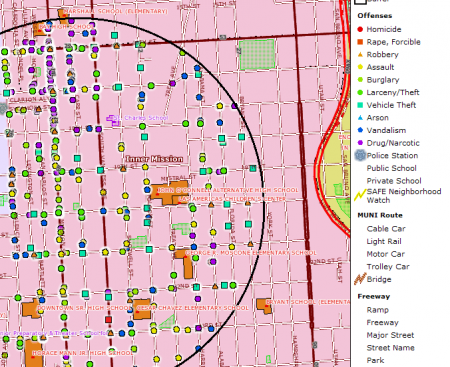
San Francisco Mayor Gavin Newsom announced that his city will provide crime, health and other municipal data on an online portal and make it free to use for anyone.
Sporting a fashionable “beta” in its logo, all datasets are available at datasf.org.
From restaurant guides accessing health code ratings to navigation systems updating the status of roadblocks, the datasets open the way for applications giving more detailed information to citizens or tourists in the bay area.
Even though the available number of datasets is low at the beginning (about 100 datasets are available), it is expected to increase, creating even more possibilities for creative and informative uses.
The data includes a whole range of topics and forms, such as data on crime incidents, list of street trees or geographical data on road center lines. Uses could include, but are not limited to investigating whether your new apartment is in a crime area or not or helping policymakers make informed decisions on road construction by being able to find dangerous intersections.
Advantages of opening the data to anyone are manyfold:
- Users might develop new applications or mashups no one has thought about.
- It leads to more transparency of the city government and its decisions.
- Private users might get the data out to the general public more quickly than the traditional city council.
This move is in line with many other projects aimed at opening government data.
A quick overview:
- Nanaimo, Canada datafeeds site
- Washington, DC data catalog
- US government data.gov website
While all this is exciting news for proponents of open government, even more exciting is the fact that other cities are mulling over opening up their data as well. These include Vancouver, Canada, Birmingham, UK and New York.
A very good overview can be found on David Eaves’ blog entry “The Rise of the Open City“.
